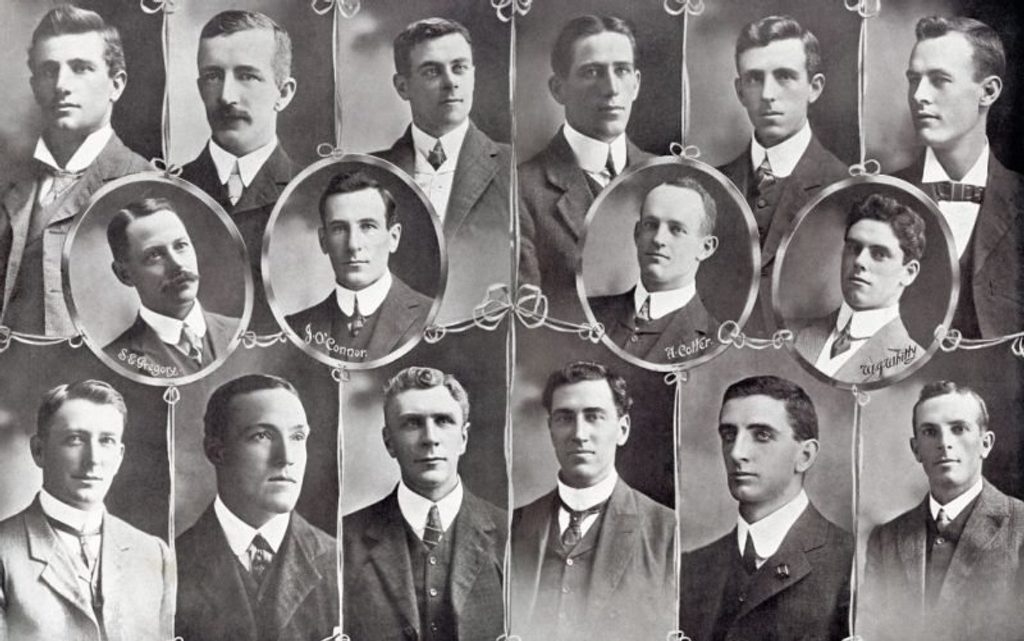
Warren Bardsley, a stylish left-hander from Australia excelled for New South Wales during the 1908/09 home season and carried that form through to his first Ashes summer in England. He was named a Wisden Cricketer of the Year in 1910.
Warren Bardsley scored 2,469 runs at 40.47 in 41 Tests for Australia. In 250 first-class matches, he scored 17,025 runs at 49.92 with 53 hundreds – the third most for Australia at the time of his retirement in 1926/27 after Bradman and Hassett.
Warren Bardsley was born at Warren, New South Wales, on December 7th, 1884. Nothing in recent cricket has been so remarkable as the rise of this latest Australian star. On his form in this country last summer he may, without exaggeration, be described as the most dangerous batsman in the world, and yet it is less than two years since he was seen for the first time in a big match. He had, however, been known for several years as a very good bat, and had played two or three times against Queensland.
His chance came in February, 1908, in the return match at Sydney between New South Wales and the MCC’s England Eleven. The game was left drawn, rain preventing a ball being bowled on the sixth day, when New South Wales, with a wicket to fall, wanted twelve runs to win. Bardsley failed in his first innings, but in his second he played splendidly for 108. This performance he followed up a month later with scores of 34 and 67 for the Rest of Australia against the Australian Eleven in Noble’s Testimonial match, and his reputation was made.
Still, excellent as was his form, no one could have been quite prepared for the wonderful things he did during the Australian season of 1908/09. In nine innings, he scored 748 runs, making 119 for New South Wales against South Australia, 192 for New South Wales against Victoria, and 264 for the Australian Eleven against the Rest of Australia.
However, though his claims were overwhelmingly strong, he was not one of the first men chosen for the English tour. Indeed, a week before he scored his 264 he played in the first of the two trial matches for the Rest of Australia against the Australian Eleven. Ransford had an even more astonishing record for the season, so that before the team left Australia we knew in this country that a great deal was to be expected from the two left-handed batsmen. In the result, all anticipations were far exceeded. Even in a season of sunshine and dry wickets, the scoring of both men would have been extraordinary.
Bardsley found his form in the opening match at Trent Bridge and never fell off. His successes culminated with his two separate hundreds in the Test Match at the Oval, and he finished the trip with a hundred in the closing fixture at Bray. He and Ransford can look back upon the tour with intense satisfaction, no other Australian batsman on a first visit to England has ever done so well. In comparing them with the great left-handed batsmen whose places they filled, one must remember, however, that like Darling, they came here at an ideal age for hard work in the cricket field.
 Australia’s Ashes team of 1909 featuring Warren Bardsley, top-row, third from left
Australia’s Ashes team of 1909 featuring Warren Bardsley, top-row, third from left
Clem Hill, on the other hand, was a lad of little more than nineteen when in 1896 we saw him for the first time. In point of style, Bardsley compares favourably with any left-handed batsman of this generation. The straightness of his bat and the upright position he adopts at the wicket lend a peculiar charm to his play. He uses his feet to perfection, and he is a master of many strokes. In cutting behind point he is less brilliant, perhaps, than Clem Hill, but he is stronger in hitting past cover point and just as wonderful on the leg side. Moreover, he has at his command a very powerful straight drive.
Indeed, no left-handed batsman in my time has possessed greater skill in scoring all round the wicket. Whether his defence on a treacherous pitch is quite so good as Ransford’s is a point on which I am in some doubt. On reaching home after his triumphs in England Bardsley lost no time in reproducing his form. Just as the last pages of Wisden were passing through the press, the news was cabled over that in the Christmas match at Melbourne between New South Wales and Victoria he scored 77 and 149.








